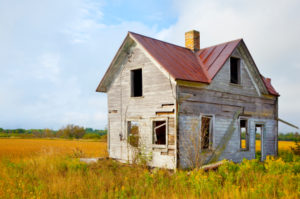 In a recent decision, the Washington Court of Appeals reinforced the rule that where a purchaser of real property has notice of a defect, the purchaser must make further inquiry of the seller. If the purchaser fails to do so, he or she may be barred from suing the seller – even when the extent of the defect is much larger than expected and even where the seller has actively tried to hide the defect.
In a recent decision, the Washington Court of Appeals reinforced the rule that where a purchaser of real property has notice of a defect, the purchaser must make further inquiry of the seller. If the purchaser fails to do so, he or she may be barred from suing the seller – even when the extent of the defect is much larger than expected and even where the seller has actively tried to hide the defect.
Terry and Diane Visser purchased a home in 2005, hoping to renovate and resell it. Until 2009, Terry was a licensed real estate broker. The Vissers ran out of money during the course of renovations and directed workers to make superficial repairs that disguised larger problems. Specifically, in various portions of the house, the wood framing was so rotted that it would not hold screws or nails. The Vissers nevertheless directed workers to proceed with superficial repairs, disguising the home’s structural problems with caulk and paint.
In 2007, the Vissers sold the home to Nigel and Kathleen Douglas. As part of the purchase process, the Douglases hired a home inspector who noticed that a portion of the sill plate was rotted and that some of the floor joists had been “sistered.” However, the inspection did not reveal the full extent of the water damage, and the Douglases did not follow up with the Vissers regarding the water damage. In 2008, after completing the purchase, the Vissers discovered that the home was a total loss; it would be less expensive to tear down and rebuild than to repair.
The trial court entered judgment in favor of the Douglases for repair (i.e. replacement) costs, moving expenses, emotional distress, and Consumer Protection Act damages, but the Court of Appeals reversed the trial court’s judgment. Even though it deemed the Vissers’ actions “reprehensible” and acknowledged that the defects in the home were “magnitudes greater” than expected by the Douglases, the Court of Appeals held that the Vissers’ knowledge regarding the sill plate and floor joists obligated them to further inquire. Because the Douglases failed to do so, their claims were barred. Adding insult to injury, the Court of Appeals ordered the Douglases to pay the Vissers’ attorney fees and interest.